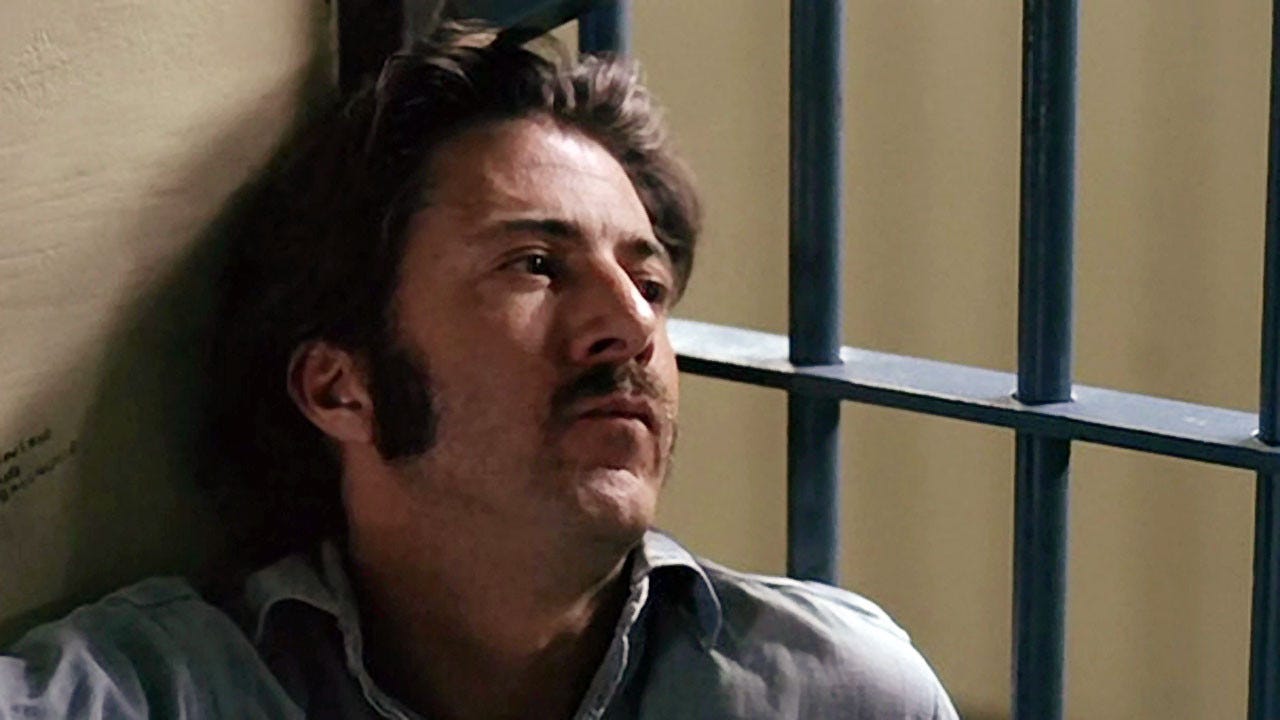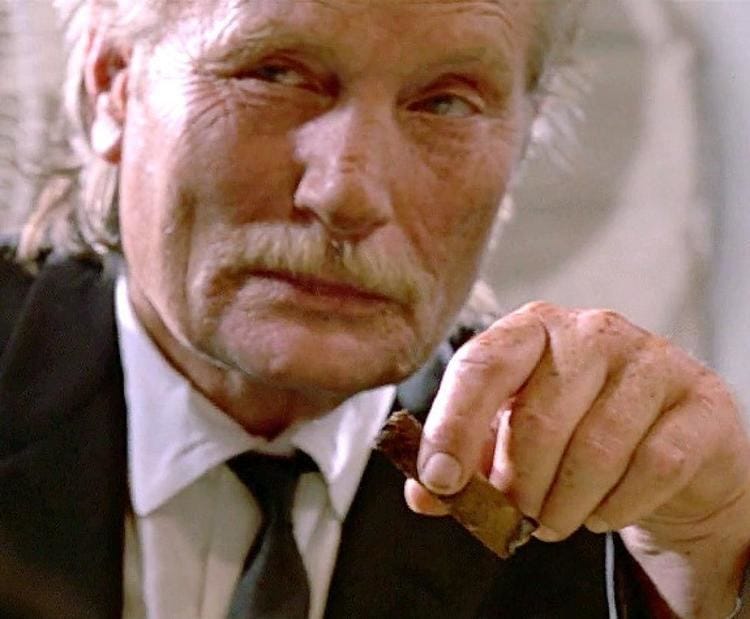Prison stories have been a staple of crime fiction going all the way back to The Count of Monte Cristo. The wrongly convicted man is an often recycled trope, along with the not-quite-so-bad criminals victimized by a sadistic prison system. (Hello, Brute Force) And then there is the prison escape saga. But there haven't been nearly as many stories told about what happens to convicts after they have been returned to society.
Edward Bunker's No Beast So Fierce is one of the best of this overlooked genre. Bunker himself was a career criminal and spoke from a place of authority on the subject. The power of the novel draws from that personal experience and draws a harsh picture of the difficulties of ex-cons adjusting to life outside of bars. But it's real value to crime writers (and readers) is it's deep examination of the psychology and pathology of the hardened criminal mind.
Bunker was a troubled wild child from the start. He was criminally institutionalized at a shocking young age, entering reform school at age 12. At age seventeen he was sent to San Quentin for stabbing a jail guard. After that, he was in and out of prison throughout the 1950s and 1960s.
While in prison, Bunker wrote several novels and an assortment of short stories. His first novel, No Beast So Fierce was sold while he was still incarcerated. It was released to high praise in 1973 and he was discharged from prison in 1975, never to return.
No Beast So Fierce is semi-autobiographical, beginning with the release of convict Max Dembo from prison after a lifetime in and out of incarceration. He fosters a weak intent to go straight, but his status as an ex-con closes off meaningful employment to him, and a moralistic parole officer fails to give him any breaks. In addition, his own volatile nature soon pushes him back into old criminal circles and before long he is planning and executing armed robberies. At a critical moment, he attacks his parole officer and from then on, he is on the run as a fugitive. The book climaxes with a truly surprise ending, one that drew a respectful smile from me.
No Beast So Fierce offers a harsh window in the criminal mind and underworld. Bunker spares no details of the lives of inmates, ex-cons, and criminals and the people in their lives. His portrayal of the punitive nature of the justice system is unsparing, but he also isn't afraid to spotlight the inherent pathologies of crooks that make it difficult for them to fit in and live a normal life. And with all that, No Beast So Fierce is a taut, well crafted story that seethes with rich, seedy depictions of 1970s Los Angeles and leads the reader to empathize with a sometimes anti-social protagonist.
For anyone writing crime fiction who wants to delve into criminal psychology or culture, I highly recommend the book, along with Bunker's autobiography: Education of a Felon. You may also want to check out Thieves Like Us, by Edward Anderson, another classic hard-boiled tale of a young convict on the run.
No Beast So Fierce was adapted in 1978 as Straight Time, starring Dustin Hoffman as Max Dembo. Bunker co-wrote the screenplay and played a small role. The movie follows the plot of the book fairly closely, with a different, ambiguous ending.
M. Emmett Walsh, the great character actor is absolutely brilliant as the sleazy parole officer. He smiles and tells corny jokes as he wrecks Hoffman's efforts at going straight and when Hoffman turns on him violently, you root for his humiliating comeuppance.
The rest of the supporting cast is solid. Harry Dean Stanton plays Hoffman's robbery partner and even gets a chance to strum a guitar and sing. Gary Busey brings his patented twitchy grin to the role of an unreliable junkie who repeatedly gets Hoffman into trouble. But the real standout is Theresa Russell in one of her earliest roles. As Hoffman's girlfriend, Russell is sexy and independent, choosing to go with a bad boy, but realizing before it's too late that his life is headed for a dead end.
The movie isn't the hard-boiled slice of life that the book is, but it retains enough brutal moments to remain a worthy adaptation. Given that it apparently was a sort of vanity project for Hoffman, who was originally going to direct it, the softening of the character Max Dembo could have been expected. The ending, which doesn't provide any sort of resolution or justice for the main character is very characteristic of a lot of 1970s movies. That was truly the decade of the ambiguous ending.
Bunker released several more crime novels and eventually wound up writing screenplays for Hollywood, most notably 1985's Runaway Train. In 1992, Quentin Tarantino - a major fan of his work - cast Bunker as Mr. Blue in Reservoir Dogs. He has a few lines in the opening monologue but is killed off screen during the robbery.
The 2016 movie No Beast So Fierce has nothing to do with Bunker's book. It's about a convict released from prison who is trying to find his son, whom a prison gang leader has put a hit on. I couldn't finish it, it's so poorly directed and written, and was annoyed that the main character never changes his shirt. Bunker died in 2005, so he wasn't around to protest the theft of his title.






Good read.
I enjoy the book more than the movie. The movie has good set pieces but it's tame compared to the novel.
The book is ferocious like its title. Max is a fascinating character. By turns he's captivating and likeable, but sometimes he's repulsive and you hate him, even as you wish for him to win in the system he's caught. Often he's his own worst enemy.
A truly honest look into the mind of a convict and committed criminal.